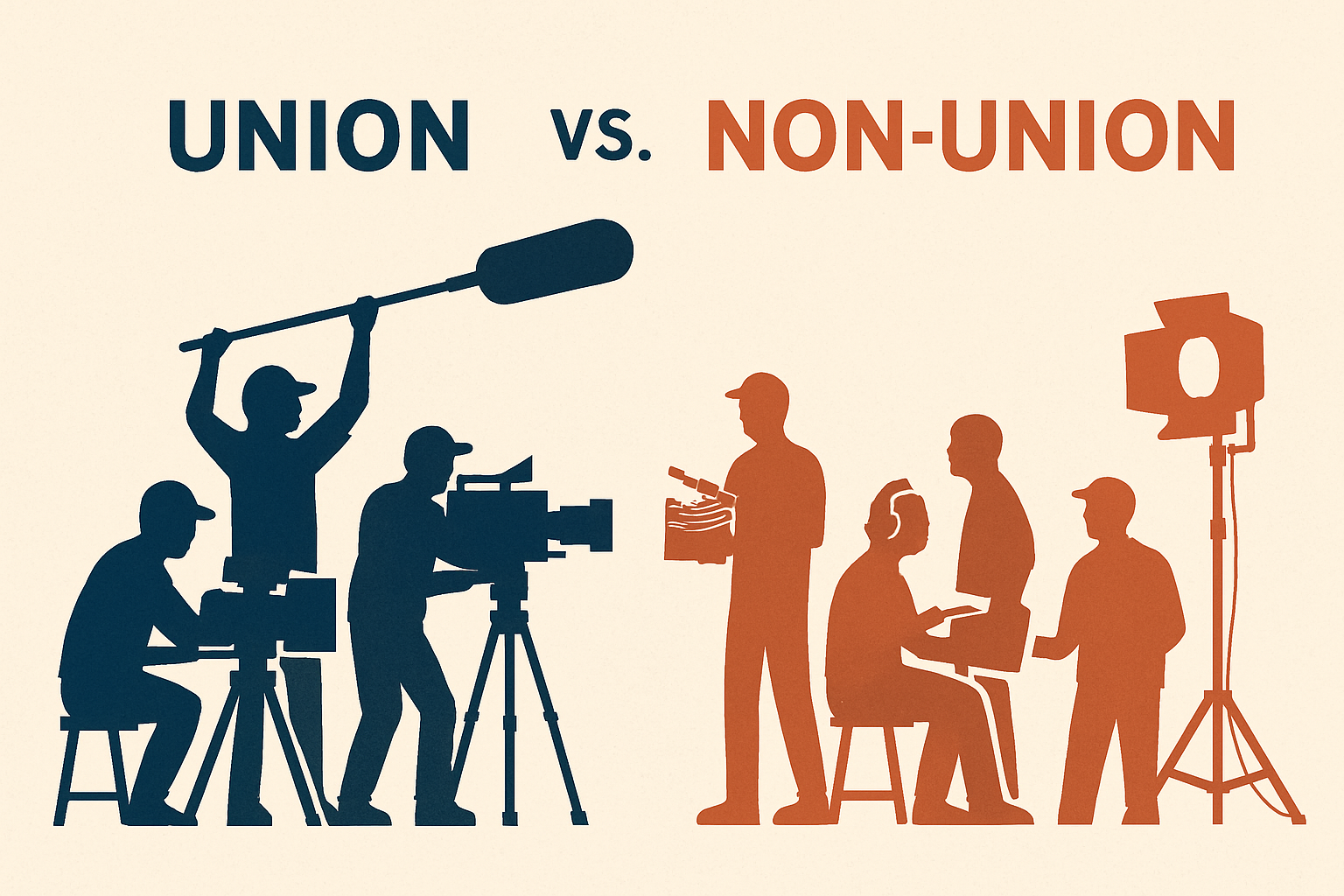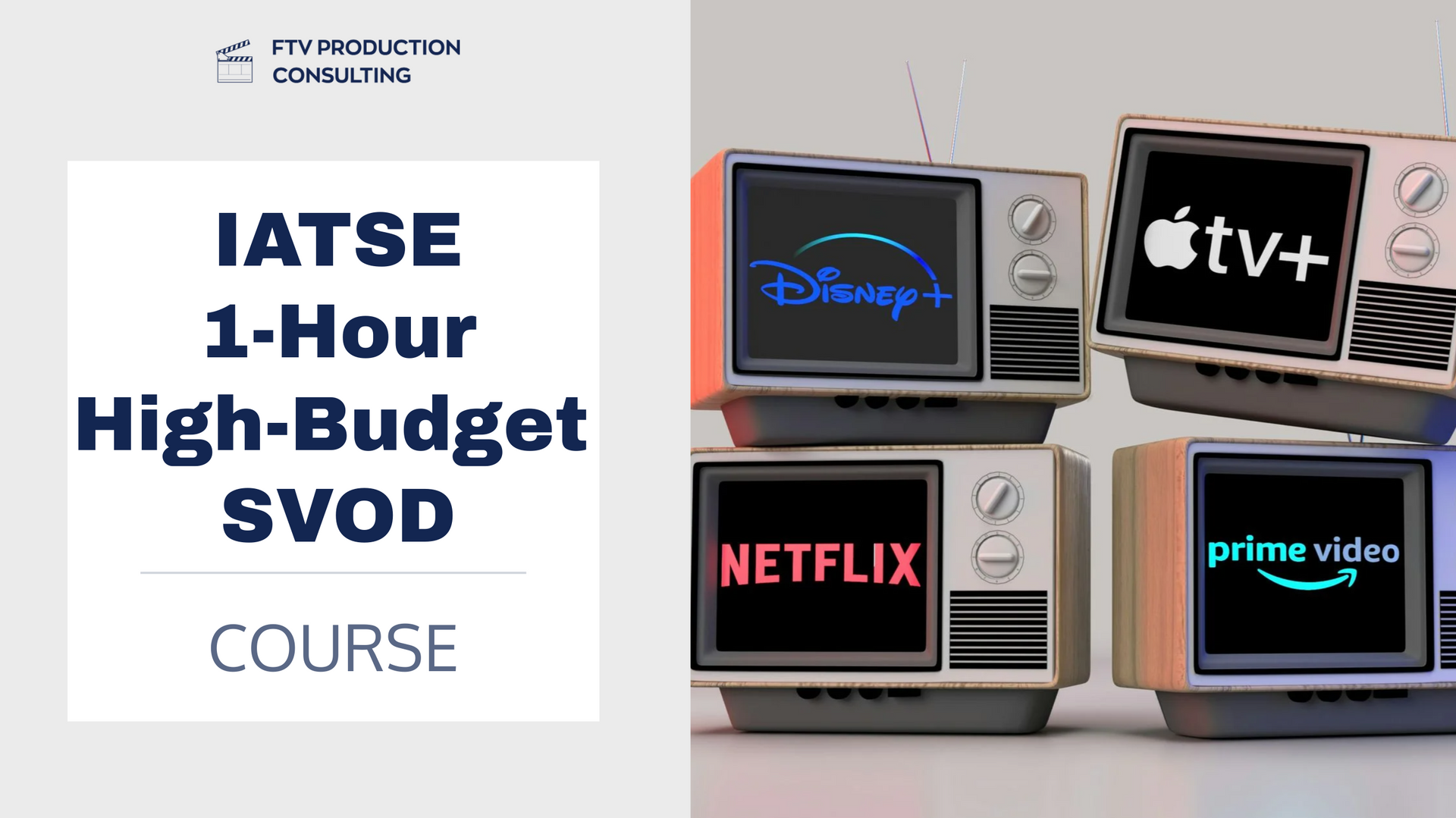Union vs. Non-Union: Key Labor Compliance Differences Every Production Company Must Know

Navigating labor compliance in the entertainment industry is not just about keeping the lights on, it is about protecting your project, your people, and your reputation. One of the biggest forks in the road for any production company is deciding whether a project is union or non-union. That decision instantly triggers two completely different sets of labor compliance obligations. If you are not clear on those differences, you are leaving your production exposed to major financial, legal, and operational risks.
Here is what production companies need to understand about the key labor compliance differences between union and non-union productions.
1. Governing Rules and Agreements
The most fundamental difference is that union productions are governed by collective bargaining agreements (CBAs) negotiated by labor unions like SAG-AFTRA, IATSE, DGA, and WGA. These CBAs create legally binding minimum standards for wages, hours, working conditions, residuals, health and pension contributions, and grievance procedures.
Non-union productions, by contrast, are primarily governed by baseline federal, state, and local employment laws such as the Fair Labor Standards Act (FLSA), California Labor Code, and wage orders like Wage Order 12. There is more flexibility, but also less built-in structure, meaning it is up to the production company to ensure legal compliance without a CBA safety net.
Compliance Takeaway: On a union show, the union contract serves as the law of the land, and breaching it can lead to grievances, arbitrations, and expensive damages. On a non-union show, standard employment laws apply, and violations often trigger wage claims, class actions, and Private Attorneys General Act (PAGA) penalties.
2. Wages, Hours, and Overtime
Union agreements set very specific wage minimums by role, tier, and sometimes even by platform, such as streaming versus theatrical. They also define when overtime kicks in, often daily and weekly, along with meal penalties, rest period requirements, and premium pay scenarios.
Non-union workers must still be paid at least minimum wage and overtime under applicable law, like time and a half after 8 hours per day in California. However, there is no required minimum above that unless you set one contractually. Rest break and meal period compliance still matters, but enforcement comes through labor agencies or lawsuits, not union grievances.
Compliance Takeaway: Union productions must strictly follow detailed wage schedules and premium pay rules. Non-union productions have more leeway in setting pay rates but must vigilantly follow state and federal overtime, meal, and rest period laws.
3. Health, Pension, and Retirement Contributions
On union shows, production companies must make specific health and pension plan contributions on behalf of covered employees, often at set hourly or percentage-based rates. Contributions are made to union-affiliated benefit plans like the Motion Picture Industry Pension and Health Plans (MPIPHP), SAG-AFTRA Health Plan, or DGA Plans.
Non-union productions have no obligation to provide health insurance or retirement benefits, although offering them voluntarily can be a recruitment tool. When they do offer benefits, they must comply with ERISA rules, Affordable Care Act (ACA) requirements, and nondiscrimination laws.
Compliance Takeaway: Union productions have automatic, mandatory contribution obligations that must be calculated and remitted correctly. Non-union productions control benefit offerings but must follow general benefits compliance laws if they provide coverage.
4. Onboarding, Paperwork, and Deductions
Union projects must collect not only the standard employment documents like W-4s, I-9s, and state tax forms, but also union-specific paperwork such as dues authorization forms, benefit election forms, and sometimes "report to the fund" notices. Union dues and working dues must be deducted and remitted properly to the unions.
Non-union productions manage more typical onboarding documents without union-specific requirements. However, states like California and New York have their own strict onboarding requirements, including wage theft notices and sick leave acknowledgments.
Compliance Takeaway: Union shows have extra layers of required paperwork and deductions, and mistakes in dues remittance can trigger penalties. Non-union shows have fewer documents but must still comply with statutory onboarding rules.
5. Grievance, Dispute, and Discipline Procedures
Union employees have the right to file grievances under the CBA if they believe the company violated contract terms. The CBA outlines a structured dispute resolution process, often escalating from informal meetings to formal arbitration. Disciplining or terminating a union worker often requires "just cause" and adherence to specific procedural safeguards.
Non-union employees can be fired at will unless a contract says otherwise, though anti-discrimination and retaliation laws still apply. There is no grievance procedure unless the company implements one internally.
Compliance Takeaway: Union shows must follow strict discipline and grievance processes or face costly arbitrations. Non-union productions retain more disciplinary flexibility but must manage risk under general employment laws.
6. Audits and Enforcement Risks
Union productions are subject to benefit fund audits, such as MPI audits and SAG-AFTRA Health Plan audits, to verify that proper contributions were made. They are also vulnerable to union compliance audits or grievances around pay practices, meal penalties, and contract interpretation.
Non-union productions can face audits by state or federal labor agencies, like the California Labor Commissioner or the U.S. Department of Labor, based on wage claims, misclassification, or worker complaints.
Compliance Takeaway: Union productions must prepare for union-initiated audits and grievance investigations. Non-union productions face enforcement primarily through government agency audits but are not subject to union oversight.
Conclusion
Choosing between union and non-union production models is not just a creative or financial decision, it is a major labor compliance decision. Union productions bring structure, but strict rules and mandatory contributions. Non-union productions offer more flexibility but require a sharp focus on general employment laws to avoid serious liability.
No matter the path your production takes, being proactive about labor compliance is essential. Early planning, strong policies, and expert labor relations support can keep your production running smoothly, avoiding costly disruptions and protecting the long-term success of your project.









